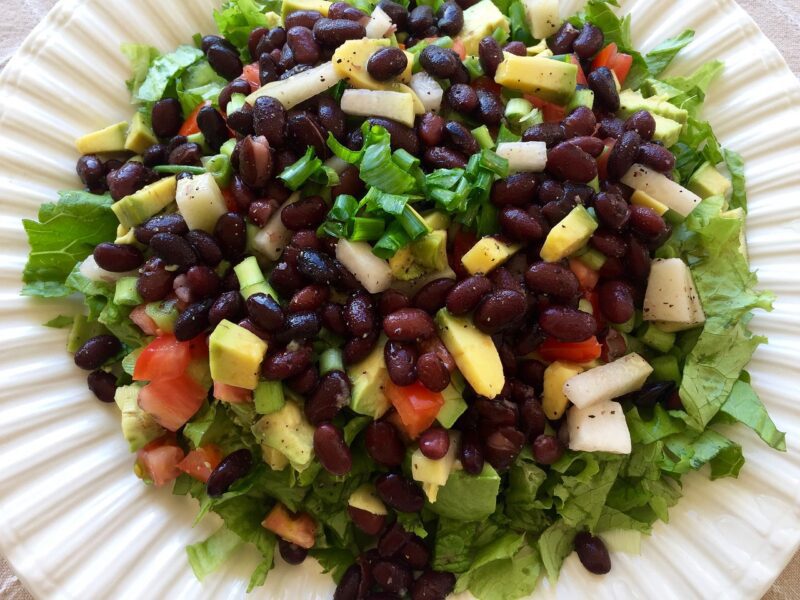Top 10 Reasons to Buy Organic
Call for an appointment 904-826-1965

So why should you go organic? Sure, the cost is higher, but there are plenty of compelling reasons to stick with organic goods whenever possible. Here are the top ten reasons to buy organic whenever possible.
1: Protect Future Generations
The average child receives four times more exposure than an adult to at least eight widely used cancer-causing pesticides in foods. The food choices you make now will influence your child’s health in the future.
2: Prevent Soil Erosion
The Soil Conservation Service estimates that more than three billion tons of topsoil are eroded from United States croplands each year. That means soil is eroding seven times faster than it is being built up naturally. Sustainable farming builds soil.
3: Protect Water Quality
Water makes up two-thirds of our body mass and covers three-fourths of the planet. Despite its importance, the Environmental Protection Agency (EPA) estimates pesticides – some cancer-causing- contaminate the groundwater in 38 states, polluting the prima sources of drinking water for more than half of the country’s population.
4: Save Energy
Modern farming uses more petroleum than any other single industry, consuming 12 percent of the country’s total energy supply. More energy is now used to produce synthetic fertilizers than to till, cultivate, and harvest all the crops in the United States.
Organic farming is still mainly based on labor-intensive practices, such as weeding by hand and using green manures and cover crops rather than synthetic fertilizers to build up soil. Organic produce also tends to travel fewer miles from field to table.
5: Keep Chemicals Off Your Plate
Many pesticides approved for use by the EPA were registered long before extensive research linking these chemicals to cancer and other diseases had been established. Now the EPA considers 60 percent of all herbicides, 90 percent of all fungicides, and 30 percent of all insecticides carcinogenic.
A 1987 National Academy of Sciences report estimated that pesticides might cause an extra 1.4 million cancer cases among Americans during our lifetime. The bottom line is that pesticides are poisons designed to kill living organisms and can also be harmful to humans. In addition to cancer, pesticides are implicated in birth defects, nerve damage, and genetic mutation.
6: Protect Farm Worker Health
A National Cancer Institute study found that farmers exposed to herbicides had a six times greater risk than non-farmers of contracting cancer. In California, reported pesticide poisonings among farm workers have raised an average of 14 percent a year since 1973, and doubled between 1975 and 1985. Field workers suffer the highest rates of occupational illness in the state.
7: Help Small Farmers
Although more and more large-scale farms are making the conversion to organic practices, most organic farms are small independently owned and operated family farms of less than 100 acres. It is estimated that the United States has lost more than 650,000 family farms in the past decade. And with the U.S. Department of Agriculture predicting that half of America’s farm production will come from one percent of farms by the year 2000, organic farming could be one of the few survival tactics left for family farms.
8: Support A True Economy
Although organic raised foods might seem more expensive than conventional foods, conventional food prices do not reflect hidden costs borne by the taxpayers, including nearly $74 billion in federal subsidies in 1988. Other hidden costs include pesticide regulation and testing, hazardous waste disposal and cleanup, and environmental damage.
9: Promote Biodiversity
Mono-cropping is the practice of planting large plots of land with the same crop year after year. While this approach tripled farm production between 1950 and 1970, the lack of natural diversity of plant life has left the soil lacking in nutrient minerals and nutrients. To replace the nutrients, chemical fertilizers are used, often in increasing amounts. Single crops are also much more susceptible to pests, making farmers more reliant on pesticides. Despite a tenfold increase in the use of pesticides between 1947 and 1974, crop losses due to insects have doubled – partly because some insects have become genetically resistant to certain pesticides.
10: Taste Better Flavor
There’s a good reason why many chefs use organic foods in their recipes – it tastes better! Organic farming starts with the nourishment of the soil which eventually leads to the nourishment of the plant and, ultimately, our plates.
As you can see, these top ten reasons to buy organic may make the decision to go for the ‘O’ that much easier. Your health is worth it.
Excerpted from an article by Sylvia Tawse, marketing coordinator for Alfalfa’s Market in Boulder and Denver, Colorado. This came into our hands from Ozark Cooperative Warehouse (sadly no longer in existence).
